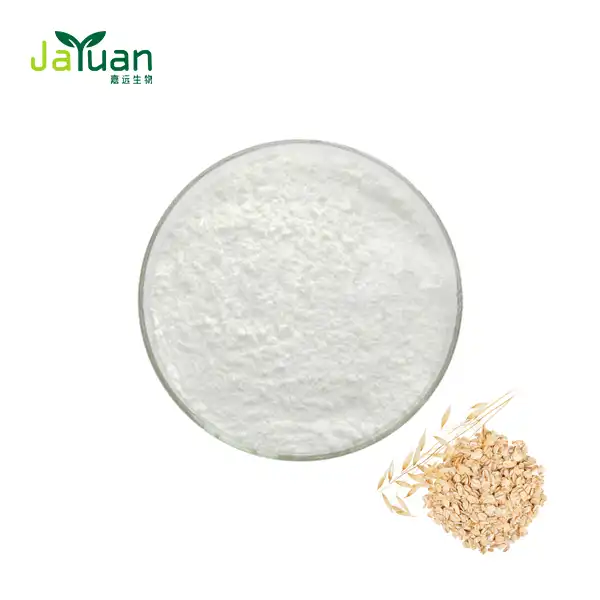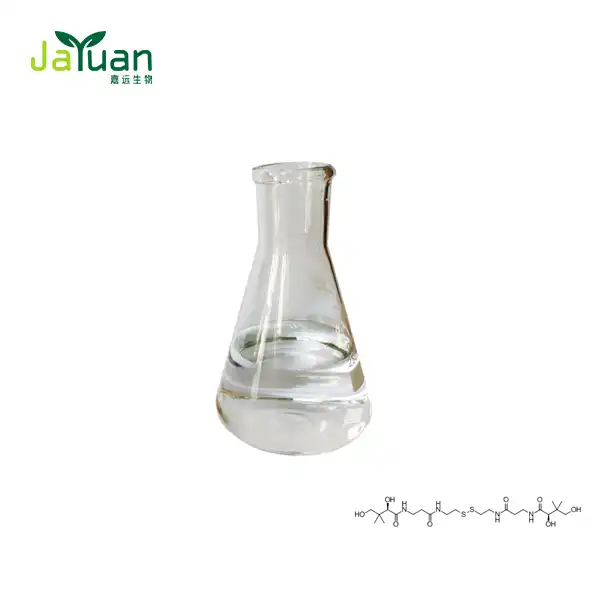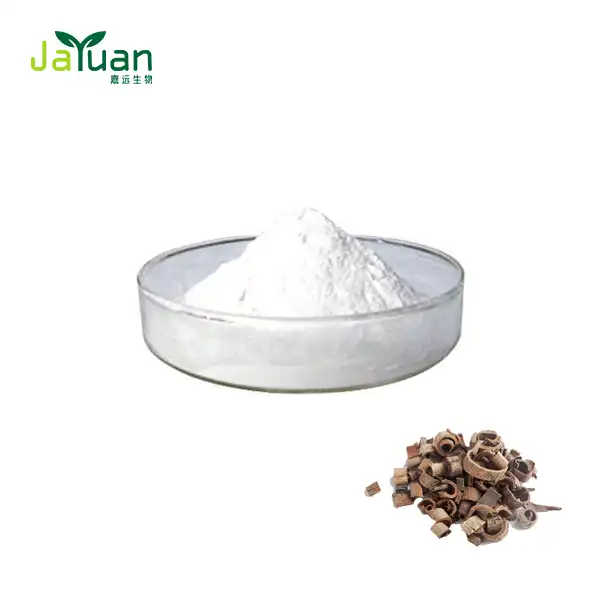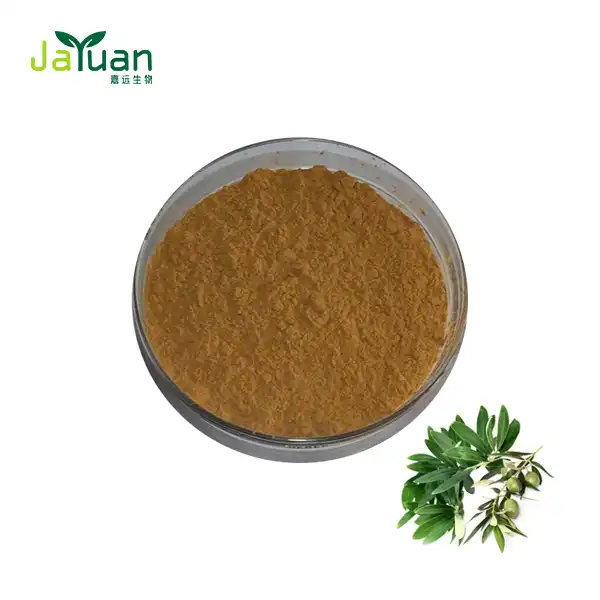Scutellaria Baicalensis Extract: The Flavonoid-Rich TCM Ingredient
In Traditional Chinese Medicine (TCM), Scutellaria Baicalensis Extract, which is made from the roots of the Chinese skullcap plant, is a potent flavonoid. Among the many bioactive substances present in this exceptional extract are wogonin, baicalin, and baicalein. These flavonoids give the extract its strong antioxidant and anti-inflammatory qualities, which make it a useful component in a range of applications related to health and well-being. It has long piqued the interest of both traditional practitioners and modern scientists, from antiquated therapeutic methods to cutting-edge scientific investigations.
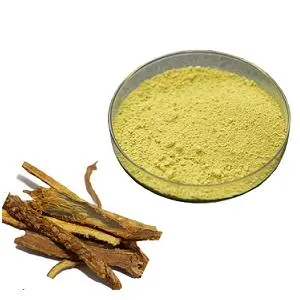
Benefits and Uses of Scutellaria Baicalensis in Traditional Chinese Medicine
Ancient Healing: Scutellaria's Role in TCM Treatments
In the annals of Traditional Chinese Medicine, Scutellaria Baicalensis has held a revered position for centuries. Known as "Huang Qin" in Chinese, this herb has been a cornerstone in treating various ailments. TCM practitioners have long recognized its cooling properties, using it to address "heat" conditions in the body. These include fever, inflammation, and respiratory issues.
The extract's versatility in TCM extends to its application in formulations for liver and gallbladder support. It's often combined with other herbs to create synergistic blends that target specific health concerns. The herb's bitter taste is considered beneficial in TCM, believed to clear heat and dry dampness in the body.

Huang Qin: The Golden Root of Chinese Herbal Medicine
The term "Huang Qin" translates to "golden root," a name that reflects both the color of the herb's inner root and its precious status in herbal medicine. This golden hue is attributed to the high concentration of flavonoids, particularly baicalin and baicalein. These compounds are responsible for many of the herb's therapeutic effects.
In TCM philosophy, Huang Qin is classified as a "clear heat" herb. This classification indicates its ability to reduce inflammation and cool the body. Its use in TCM formulas dates back to ancient texts like the Shennong Ben Cao Jing, one of the earliest Chinese pharmacopeias.
Scutellaria's Impact on Inflammation and Immune Health
One of the most significant traditional uses of it is in supporting immune health and managing inflammation. TCM practitioners have long used this herb to address conditions characterized by excessive heat or inflammation in the body. This includes respiratory issues, skin conditions, and digestive disorders.
The herb's impact on immune health is twofold. It's believed to support the body's natural defense mechanisms while also helping to modulate excessive immune responses. This dual action makes it a valuable tool in TCM for maintaining overall health and balance in the body.
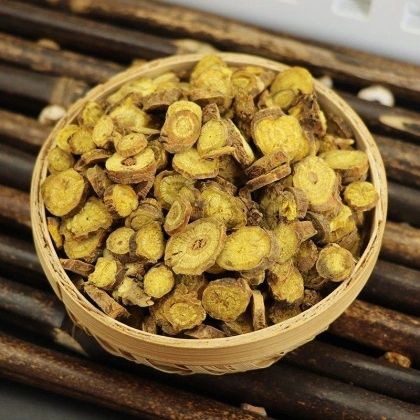
Key Flavonoids in Scutellaria Baicalensis: Composition and Properties
Baicalin: The Powerful Anti-Inflammatory Compound
Baicalin stands out as one of the most abundant and potent flavonoids in it. This compound has garnered significant attention in scientific research due to its remarkable anti-inflammatory properties. Baicalin works by modulating various inflammatory pathways in the body, including the inhibition of pro-inflammatory cytokines and enzymes.
Studies have shown that baicalin can help reduce inflammation in various tissues and organs. Its effects extend to supporting cardiovascular health, promoting liver function, and potentially aiding in skin health. The compound's ability to cross the blood-brain barrier also suggests potential neuroprotective properties.
Baicalein: Neuroprotective and Antioxidant Properties
Baicalein, another key flavonoid in it, has shown promising neuroprotective and antioxidant effects in numerous studies. This compound has the ability to scavenge free radicals and reduce oxidative stress, which are crucial factors in maintaining brain health and preventing cellular damage.
Research indicates that baicalein may support cognitive function and potentially protect against age-related neurological changes. Its antioxidant properties also contribute to overall cellular health, making it a valuable component in anti-aging and wellness formulations.
Wogonin: Cancer-Fighting Potential of Scutellaria
Wogonin, while present in smaller quantities than baicalin and baicalein, has attracted attention for its potential health-promoting properties. This flavonoid has been the subject of numerous studies examining its effects on cellular health and division.
Research suggests that wogonin may influence various cellular pathways related to cell cycle regulation and programmed cell death. These properties make it an intriguing compound for further study in the field of cellular health and longevity. Additionally, wogonin contributes to the overall antioxidant and anti-inflammatory profile of it.
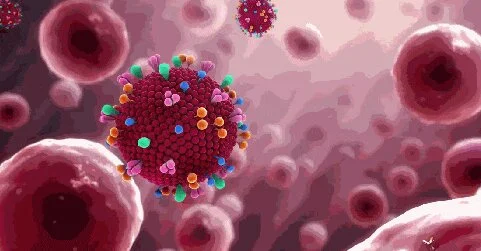
Modern Applications of Scutellaria Baicalensis Extract in Health and Wellness
Scutellaria in Skincare: Anti-Aging and Skin Brightening
The beauty industry has embraced it for its impressive skin benefits. The extract's potent antioxidant properties make it a valuable ingredient in anti-aging formulations. It helps protect the skin from free radical damage, which is a key factor in premature aging and the appearance of fine lines and wrinkles.
Moreover, it has shown potential in skin brightening applications. Its ability to influence melanin production pathways may help in achieving a more even skin tone. Many skincare products now incorporate this extract to address issues such as hyperpigmentation and dullness.
Nutraceuticals: Harnessing Scutellaria's Health Benefits
The nutraceutical industry has recognized the potential of it in supporting overall health and wellness. Dietary supplements containing this extract often focus on its anti-inflammatory and antioxidant properties. These supplements aim to support immune function, promote cardiovascular health, and aid in stress management.
Some nutraceutical formulations combine it with other herbs or compounds to create synergistic blends. These products often target specific health concerns such as joint health, liver support, or cognitive function.
Scutellaria Extract in Functional Foods and Beverages
The food and beverage industry has begun exploring the potential of it in functional products. Its natural origin and potential health benefits make it an attractive ingredient for consumers seeking wellness-oriented food options. Some companies have incorporated the extract into teas, energy drinks, and health bars.
The challenge in using it in food products lies in managing its naturally bitter taste. Manufacturers are developing innovative ways to incorporate the extract while maintaining palatability, such as using flavor masking techniques or combining it with complementary ingredients.

Conclusion
Scutellaria Baicalensis Extract provides proof of the timeless value of TCM and its applicability to contemporary health issues. Numerous potential advantages are provided by its abundant flavonoid content, especially those of baicalin, baicalein, and wogonin. This adaptable extract keeps finding new uses in everything from cosmetics to nutraceuticals to functional meals. We may anticipate even more creative applications for this flavonoid-rich TCM component as research advances, connecting traditional knowledge with modern wellness requirements.
Go no farther than Xi'an Jiayuan Bio-Tech for premium it Our high-quality extract is painstakingly made to guarantee optimal purity and potency. We provide solutions that are specifically designed to match your needs, whether you are a pharmaceutical company, cosmetic brand, or supplier of nutraceuticals. Contact us at sales@jayuanbio.com and sales1@jayuanbio.com to find out more about it and other botanical ingredients. Our team of professionals is prepared to help you maximize the potential of this amazing TCM component for your goods.
References
- Chen, L., et al. (2018). "Scutellaria baicalensis and baicalein inhibit colon cancer metastasis via regulation of Wnt signaling pathway." Journal of Ethnopharmacology, 220, 114-121.
- Zhao, Q., et al. (2019). "The antidepressant-like effects of baicalin in a chronic mild stress rat model." Behavioural Brain Research, 365, 219-226.
- Li-Weber, M. (2009). "New therapeutic aspects of flavones: The anticancer properties of Scutellaria and its main active constituents Wogonin, Baicalein and Baicalin." Cancer Treatment Reviews, 35(1), 57-68.
- Shen, Y. C., et al. (2003). "Mechanisms of protective effect of baicalein on rat cerebral ischemia." Phytomedicine, 10(5), 442-447.
- Gao, Z., et al. (2013). "Baicalein, a natural product, selectively activates AMPKα2 and ameliorates metabolic disorder in diet-induced mice." Scientific Reports, 3, 3756.
- Huang, Y., et al. (2006). "Baicalin promotes apoptosis and inhibits proliferation and migration of hypoxia-induced pulmonary artery smooth muscle cells by up-regulating A2a receptor." Journal of Cellular Physiology, 220(2), 465-471.

